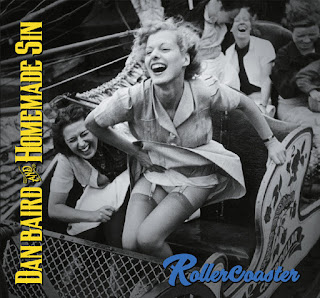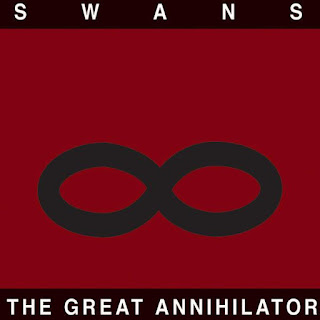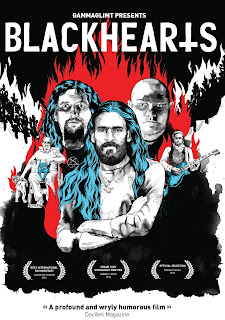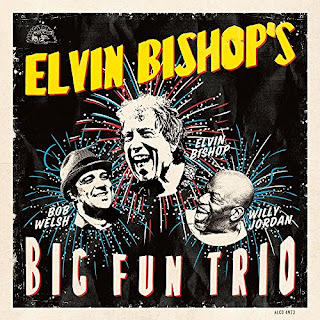Mayall also has an uncanny knack for bringing livewire guitarists to the roster, beginning with Eric Clapton and Peter Green and running through Mick Taylor, Walter Trout, Harvey Mandel, and Coco Montoya to his most recent fretburner, Rocky Athas. Heck, Mayall could have retired decades ago and his influence and musical innovations would still be recognized today. But Mayall just keeps on truckin’ like the Energizer bunny of the blues world, and his work in just the last ten years alone – albums like 2009’s Tough, 2014’s A Special Life, and 2015’s Find A Way To Care – are acclaimed, career-making efforts that belie the reality that the 83-year-old bluesman is arguably in the waning days of his lengthy career.
John Mayall’s Talk About That
Add Talk About That to the aforementioned list of recent accomplishments by the talented Mr. Mayall, OBE. Working at a breakneck pace (releasing three studio albums in a little over three years, as well as producing two live archival albums), Mayall is still bursting with musical ideas better than a half-century into his storied career. Unlike recent recordings by artists of a close-to-similar vintage (aside from Buddy Guy, Mayall has no contemporaries, really), Talk About That doesn’t offer a glut of cover songs, eight of its eleven tracks written or co-written by the artist and his band.
Witness the title track, a swaggering slab o’ funk-rock with a deep, bluesy groove (courtesy of bassist Greg Rzab and drummer Jay Davenport) that may be semi-autobiographical but it’s also a lot of fun, Mayall’s self-effacing lyrics less a meaningless boast than a positive message powerfully delivered in step with an undeniably foot-shuffling rhythm. “It’s Hard Going Up (But Twice As Hard Coming Down)” is a soul-tinged cover of a great song by obscure 1960s-era Detroit bluesman Little Sonny, the song driven by Mayall’s subtle piano playing and a full horn section that adds a not-inconsiderable amount of brassy shine to the performance.
The Devil Must Be Laughing
Mayall has always worked well with guitarists and – as mentioned above – he’s employed more than his share of talented string-benders through the years. As good as former Black Oak Arkansas guitarist Rocky Athas has been over the past few Mayall albums (Talk About That is his swansong with the band, Athas moving on to continue his solo career), the bandleader’s use of Joe Walsh (The James Gang, The Eagles) on the album’s signature song, “The Devil Must Be Laughing,” is sheer genius. The masterful interplay between Athas’s rhythm guitar and Walsh’s scorching solos is enough to mark the song as a masterwork, but Mayall’s haunting lyrics and appropriately haunted vocals (not to mention keyboards that smother the song like a burial shroud) provide an electrifying dynamic to the performance in the creation of a potent blues-rock dirge. No other performance on Talk About That is as devastating as “The Devil Must Be Laughing,” but that’s not to say that nothing else on the album rises to a high level of musical execution.
A cover of the Jimmy Rogers’ blues gem “Goin’ Away Baby” captures the song’s Chicago blues roots perfectly, Athas’s fluid guitar licks and Rzab’s nimble bass lines providing a strong undercurrent to Mayall’s soulful vocals and lively harp playing. Walsh returns for the more traditional “Cards On The Table,” a walking bass line and steady timekeeping laying the groundwork for some innovative guitarplay while the atmospheric “Blue Midnight” is a bluesy, jazz-flecked late-night tale of love lost that features Mayall’s stellar keyboards and a fine vocal performance as well as a simply stunning Rocky Athas guitar solo. The album-closing “You Never Know” takes the listener further into the early A.M. with a smoky, jazzy performance that’s heavy on piano and ennui with insightful lyrics, a throbbing bass line, and light-handed percussion.
The Reverend’s Bottom Line
Here’s an interesting question – why hasn’t John Mayall been inducted into the Rock & Roll Hall of Fame? Surely his contributions to blues and blues-rock, his history in discovering talented guitarists and launching them into successful solo careers, and the dozens of creative and innovative albums he’s recorded over the past 55 years must count for something?
It’s a rhetorical question, really, because to his legion of worldwide fans, Mayall has long been a “hall of fame” talent. That he continues to make inspiring, influential music six decades into his career it is a testament to the man’s love of the blues and his joy in music-making. Talk About That continues Mayall’s creative romp in the new millennium, the album adorned with endless charm and creative spirit proving that John Mayall will not go quietly into that good night... Grade: A- (Forty Below Records, released January 27, 2017)
Previously on That Devil Music:
John Mayall's Bluesbreakers' Live In 1967 CD review
John Mayall's Bluesbreakers' Live In 1967, Volume 2 CD review
Buy the CD from Amazon.com: John Mayall's Talk About That















